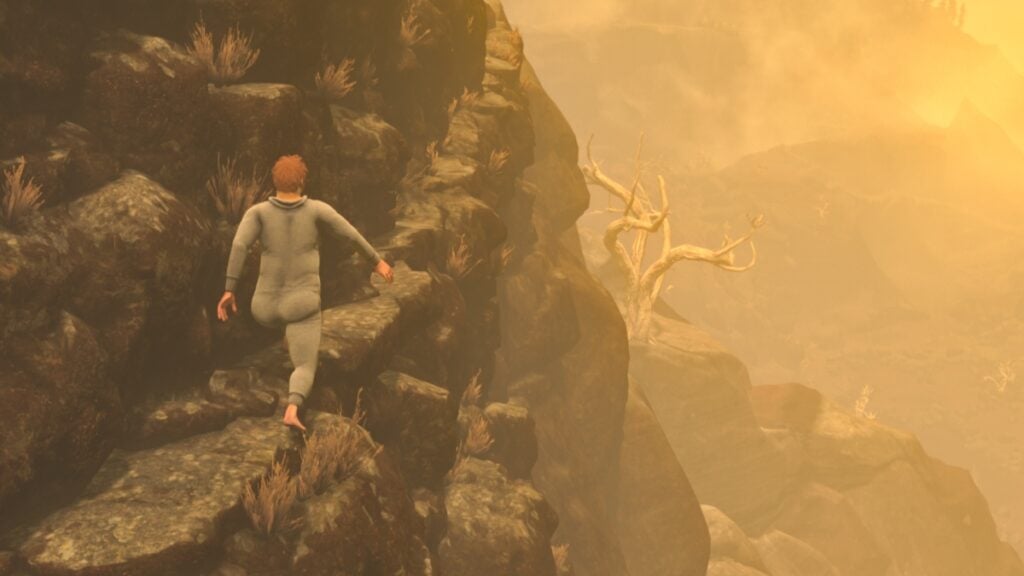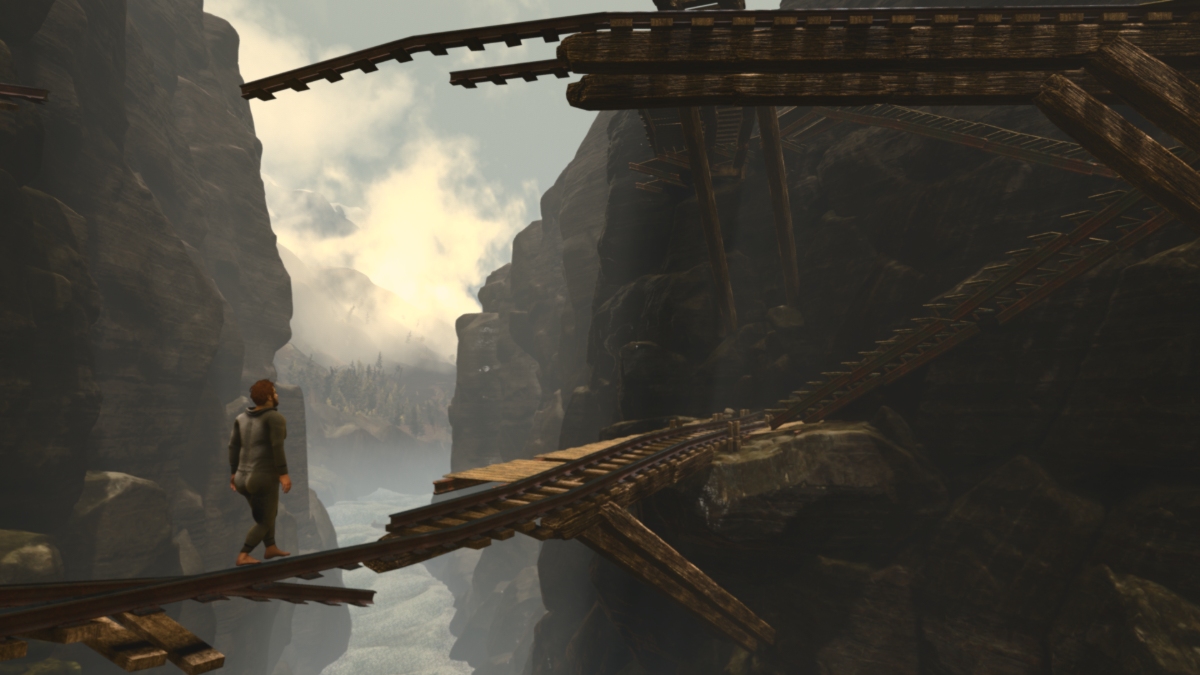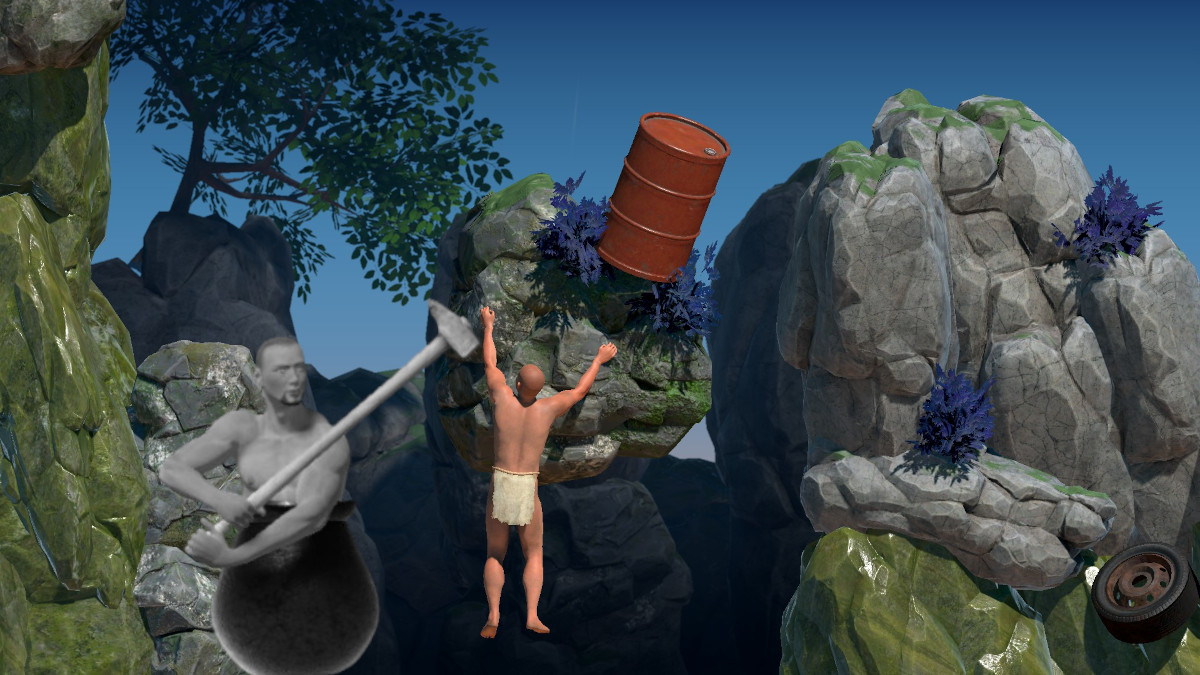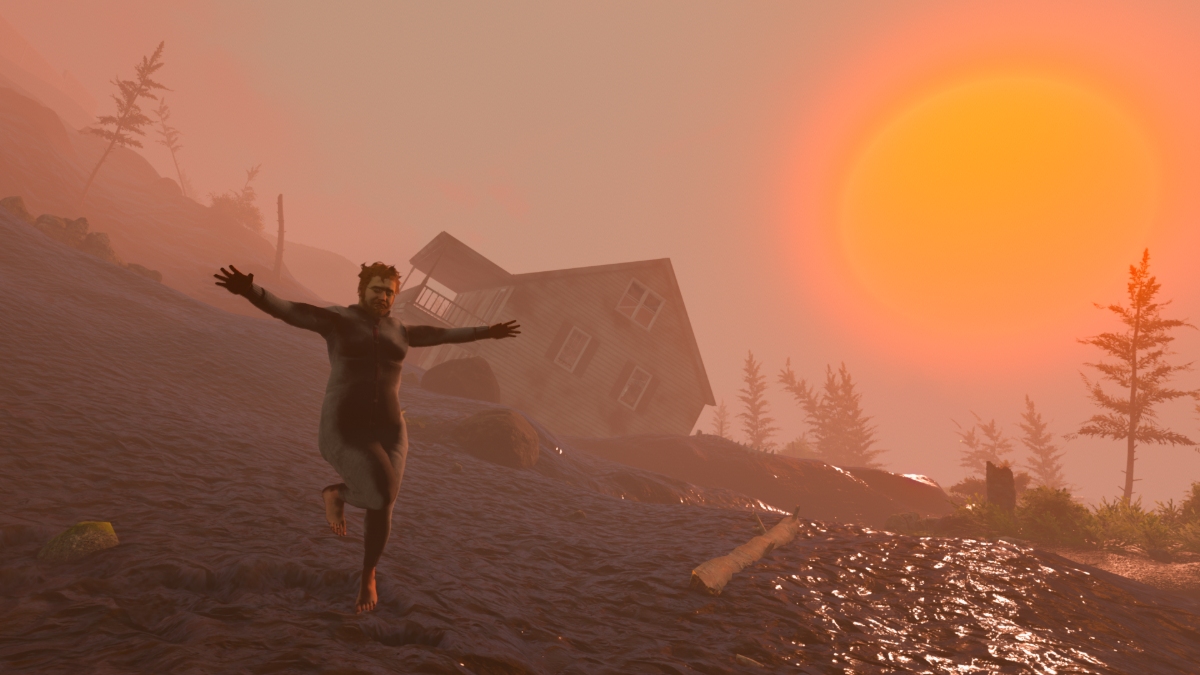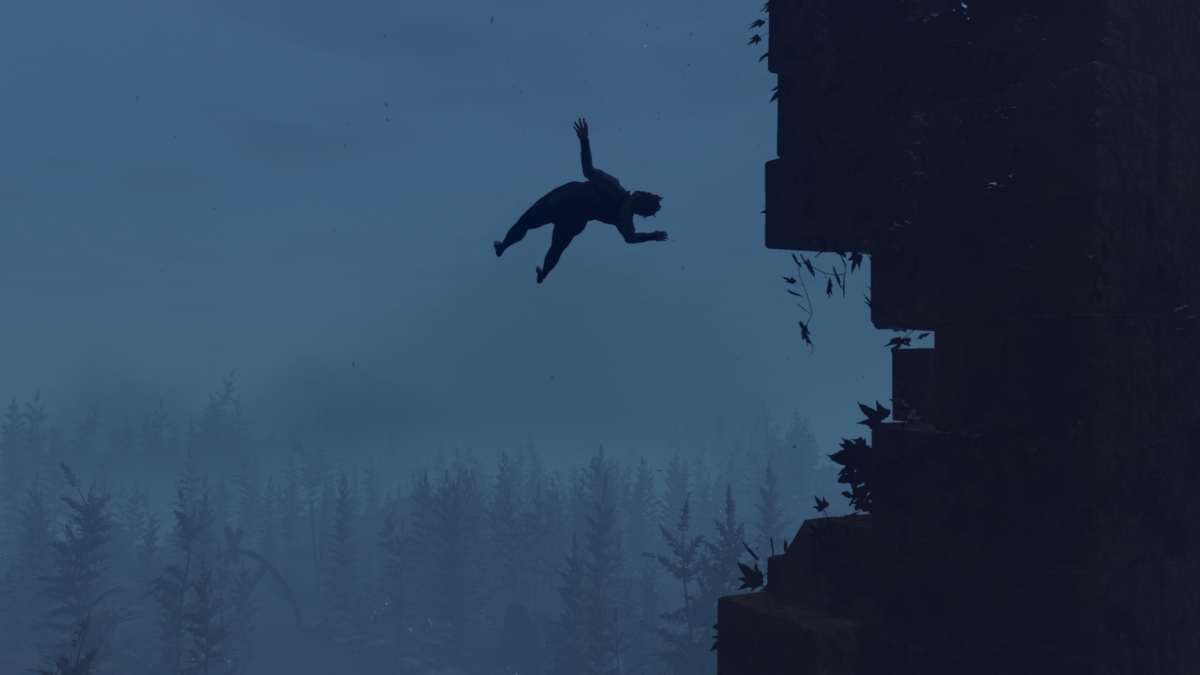Skip To...
Just when you thought the basement-dweller stereotype had been overplayed, out comes Baby Steps with a game-ified spin on the insult. And like the other games from its devs, such as Getting Over It, Baby Steps starts off as a joke but gradually evolves into a hypnotic struggle to learn something hard if you can endure its nonsense.
No Baby Mode
I need to get this out of the way, especially for those who are new to this kind of ordeal– I mean, game. Baby Steps is unapologetically difficult and at times, annoying by design. Those who have played Getting Over It with Bennett Foddy will surely be familiar with this kind of gameplay.
Getting Over It basically tasks you with controlling a man stuck inside a cauldron using only a sledgehammer to fling himself forward and over obstacles. It doesn’t make sense, just like Baby Steps, and the madness is there to usher you into the insane gameplay loop.
This time around, Baby Steps tasks you with controlling a pudgy millennial in his 30s named Nate, who for some reason, is still stuck living in his parents’ basement watching One Piece marathons while ripping bongs and farts in equal measure. At some point in his life, however, Nate will have to take “baby steps” into independence– even though it’s more than a decade late. Sounds way too familiar.
Since the plot and Nate’s parents demand it, Nate will have to face the big, wild world. Except the problem is that Nate’s legs have likely atrophied from being a couch potato, and he now walks like an infant– jelly legs and mushy ankles being non-negotiable.
The game’s control scheme thus reflects this kind of movement. I played on the PC with a controller (boo-hoo, PC master race sacrilege, whatever); the left and right trigger buttons will only raise Nate’s left and right feet, respectively. You’ll then have to control the direction where Nate’s feet will land using the left analog. It’s frustrating for someone used to simply nudging the left analog stick for movement, and that’s the whole intent of Baby Steps.
Ready for the World
Sadly (or perhaps fortunately for me), the demo only lasts around one hour. And while the game allows you to explore around the initial campsite, it’s a bit hard to judge how long it takes until the novelty of the control scheme and Nate’s hilarious misfortunes wear off.
Baby Steps, however, shows plenty of potential for viral content and speedrunners, especially if you like watching video game streamers blow their heads off in frustration outside of Soulslike games. Humor is also one of Baby Steps‘ best selling points; the awkward, self-deprecating millennial humor here makes the struggle worthwhile and acts as some kind of motivational company to keep you going.
An Actual Funny Walking Simulator
I do admire the vision behind the game, as well as the personality its developers have put into it. Baby Steps is not pointless, unlike Goat Simulator, despite being a joke game, but at the same time, certainly not as pretentious as Death Stranding, despite being a philosophical walking simulator.
Underneath that difficulty and drunken jokes, there’s an obvious lesson in Baby Steps about growth, endurance, and learning to live without instant gratification; you will simply need to play along with the teacher as it pokes fun at you during this lesson. So even as your character slips, falls, flops, and ragdolls along the muddy mountains in Baby Steps, you eventually learn to just laugh off the mishap and try again despite failing. Thank you for coming to my TED Talk.

